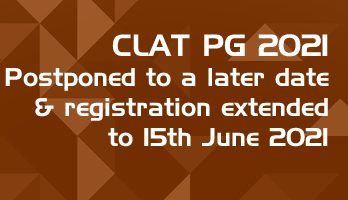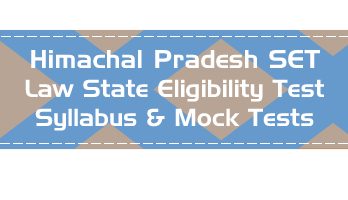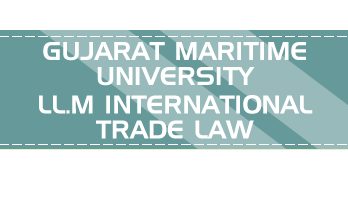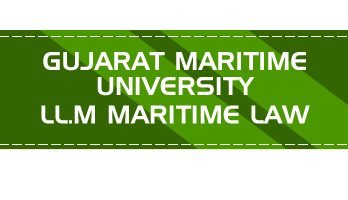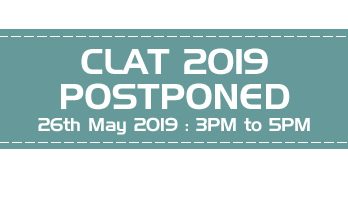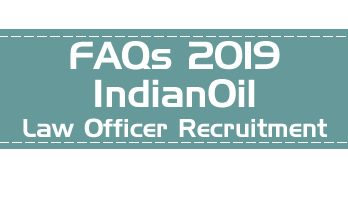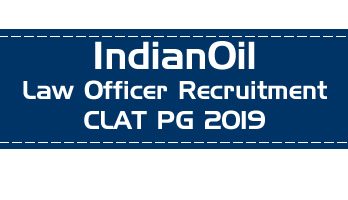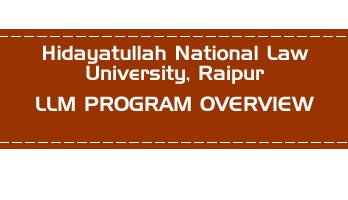BAR COUNCIL OF INDIA – NOTIFICATION – New Delhi, the 2nd January, 2021
Bar Council of India Legal Education (Post-Graduate, Doctoral, Executive, Vocational, Clinical and other Continuing Education), Rules, 2020
Free Full Course Available on LawMint's YouTube Channel
How to Land Your Dream LLB Internship in a Top Law Firm
- Part 1 - Introduction
- Part 2 - Internship Planning
- Part 3 - Internship Research
- Part 4 - Building Your Profile
- Part 5 - The Email
- Part 6 - The Resume
- Part 7 - The Cover Letter
- Part 8 - The Interview
- Part 9 - Self Development
Practical and comprehensive course, with real examples and step-by-step analysis of the complete internship application process. Check out LawMint's YouTube channel now!
F.No. BCI:D: 2/2021.— Whereas for the last a few years Ministry of Human Resource Development, Government of India, University Grants Commission and Association of Indian Universities regularly referred the various issues of Post Graduate Legal education especially for considering the matter of equivalence and other matters of One year LL.M. courses run in foreign Universities and these authorities have a considered view that the Bar Council of India should also regulate Post Graduate and Other Higher education in law; and
Whereas the Education Policy, 2020 of Government of India categorically carved out legal education from the newly proposed umbrella apex body institution, Higher Education Commission of India (HECI) with its regulatory arm of National Higher Education Regulatory Council [ NHERC] excluding the legal education as one of the only two professional education outside the swipe of the HECI and its regulatory arm, NHERC, making the entire realm of legal education for the Bar Council of India to regulate; and
Whereas the NEP indicated about the essence of hard-core of the legal education, its multidisciplinary character, international approach to law and justice, humanizing the constitutional values, vocationalize legal skills, and need for having legal education to be competitive globally; and
Whereas under Section 7 (1) (h) of the Advocates Act, 1961 Bar Council of India having reposed the functional responsibility of promoting legal education, in all its dimension with power to make globally competitive legal education to have standard set for :
(a) Post Graduate and research education;
(b) Continuing Legal education;
(c) Vocational and Para-legal Education;
(d) Technology & Court-management education and provide direct and institutional set up necessary for all such levels of education to deliver quality in all forms of legal education, including on-line virtual education and off-line education in real terms, para-legal education for wider access to and timely delivery of justice; and
Whereas any academic development for attainment of globally competitive law courses in all spheres of legal education to generate human resource required at all levels of law and justice delivery, Bar & the Bench; Teaching and Research professional staff in educational Institutions; Court management and service providers; regulatory systems and institutions in public governance;
Be that as it may, these Rules are notified in view of Sections 7(1)(h), (i); (ia); (ib); (ic); (2)(b); (c); 15(1); 49(1)(af); (d); (e) with a view to strengthen legal education at each level of undergraduate, post graduate, legal research, technology & court management, continuing legal education and professional and clinical skill development courses conducted off-line and on-line.
Chapter-I
General Provisions
1. Title & Enforcement
(a) The name of the Rules is Bar Council of India Legal Education (Post Graduate, Doctoral, Executive, Vocational, Clinical and other Continuing Education) Rules, 2020; and
(b) These Rules shall come into force from the date notified by the Bar Council of India throughout the territory of India.
2. Definitions
(1) Unless the text requires otherwise defined, the following terms used in these Rules shall mean as follows:-
(ai) Academic year means the year as may be notified by a University in its academic schedule;
(aii) Act means Advocates Act, 1960;
(aiii) Advocate means an advocate enrolled in any register of Advocates of any state;
(aiv) Attendance for taking the qualifying test shall be 75% of all classes, tutorials, lectures delivered and hours required for field studies, if any;
(bi) BCI means the Bar Council of India;
(bii) BCI Trust means B. C. I. Trust PEARL-FIRST;
(biii) Bachelor degree in law means as defined in the Legal Education Rules, 2008 or as it may be amended from time to time;
(ci) Centre for Legal Education (CLE) means as defined in the Legal Education Rules, 2008 and anybody of Rules amending or replacing the Rules, 2008;
(cii) Clinical Legal Education means and includes a course on skill learning used in actual court practice and in any judicial proceedings, in reality, virtual or through simulations including any course on alternative dispute resolution skills and technique concerning negotiation, conciliation, mediation and arbitration, run by the Bar Council of India and/or any State Bar Council, and/or University Law School/Faculty/Department with the assistance Senior legal professionals from Bar and the Bench;
(ciii) Continuing Legal Education means professional education to supplement and update legal knowledge of the legal professionals and advocates at regular or occasional intervals;
(cv) Credit Point means credit point allocated by the University in each paper (full/half) or module. Such Credit point is allocated based upon number of course hours input required which may include, inter alia, units of: class hours, case studies, presentation, and tutorials;
(cvi) Curriculum Development Committee (CDC) shall be appointed by the Special Sub- Committee (SSC) for developing, architecture and designing of various PGPL [as defined in Rule-2(1)(oi)] courses in a University/Centre of Legal Education;
(cvii) Council of Post Graduate Studies and Research of a University is constituted under the statute/Regulations of the University concerned to design courses of studies, conduct examination, set standards of certification and discharge all other functions as may be allotted to the body concerning PGPL & Research studies;
(di) Dedicated Core faculty shall comprise whole time faculty consisting of Professors, Associate Professors and Assistant professors appointed only to administer and run PGPL and Research under the Council of Post Graduate Studies and Research of a University concerned;
(ei) Executive Program means any program which may be run according to this Rules, on weekends, vacations when the courts remain in holidays as well as through on-line coursework and/or pre-examination class room revision courses etc. leading to a Master degree by any Law Graduate;
(fi) Faculty means Faculty of Law constituted by a University statute or Regulations, as the case may be;
(gi) Grade point means points secured in any paper in grading system, any semester the average secured in all the papers in the Semester commonly attributed as the SAGP and average of grade points in all papers in the entire LL.M. course, commonly attributed as Cumulative Average Grade Point or CAGP;
(gii) GEC is the General Education Council for laying down standards of learning outcomes to be achieved by all HEIs with the assistance of Professional Councils who shall function as the Professional Standard Setting Bodies;
(hi) Higher Education Commission of India (HECI) is Commission appointed by the Government of India to regulate higher education in all branches of discipline excepting professional education in Medicine and Law; (hii) Higher Education Grants Council (HEGC) is the body to take charge of financing the higher education and research in place of UGC;
(Ii) Integrated Law degree as is defined in the Legal Education Rules, 2008 amended from time to time;
(Iii) Integrated Ph.D./J.S.D. program means registering for the Masters and Doctoral program together;
(ji) Joint degree program is one where a University floats a combined two degree program, that means, another degree program with LL.M., such as LL.M, MBA. Such a joint degree shall have two time requirements back to back, such as a 2 years LL.M. with a 2 year MBA would make the joint degree for 4 years;
(ki) Legal Education Rules, 2008 means body of Rules notified and applied to regulate matters connected with undergraduate legal education, in 2008 or as may be amended from time to time;
(li) Masters’ Degree in law means LL.M. degree obtained from a recognized University after successfully completing the Master degree course in Law as laid down by the University concerned according to these Rules;
(lii) MHRD is the Ministry of Human Resource Development of the Government of India and includes any other nomenclature given by the Government of India to the said Ministry;
(mi) National Education Policy 2020 is the education policy notified by the Government of India to be observed by all HEIs;
(mii) National Committee for Integration of Vocational Education (NCIVE) is the committee of experts constituted by MHRD;
(miii) NAC is the National Accreditation Council established for accreditation of institutions;
(miv) NHERC is the abbreviated name of the National Higher Education Regulatory Council;
(ni) oriental legal system means and includes legal system of the East including indigenous legal order;
(nii) On-line course/ class means virtual class/course/meeting as the case may be conducted virtually through use of internet;
(niii) Offline course/class/ meeting is what is organized in real class room exercise; (oi) PGPL is the abbreviated form of all Post Graduate Program in Law(PGPL)including Master Degree Course in General category or Specialized category;
(oii) Ph.D. means Doctorate in Philosophy (alternately, S.J.D.) in any legal or jurisprudential subject obtained by submission of a research thesis and successfully defending the same and conferred the degree by a recognized University;
(pi) Qualifying examination means entry level qualification examination;
(qi) Rules mean Rules of Legal Education, 2008;
(ri) Specialization shall mean specialization in any branch of law such as but not restricted to Constitution & Public Law, Criminal Law, Business Law, International Law, International Trade Law, Labour Law, Taxation, Banking & Insurance Law, International Commercial Dispute Resolution, Women and the Child law, Public Policy & Governance, Human Right Laws, and Intellectual Property Right, Technology & Law etc.
Provided that if specialization in any branch is allowed to a student the concerned student shall chose at least 50% of all papers of the PGPL from the same branch of law.
Provided further that any University can introduce any area of specialization only having at least three core faculty members from that area of specialization.
(rii) Special Sub Committee (SSC) means the Sub-Committee appointed by the BCI under these Rules;
(si) These Rules mean BCI Legal Education (Post Graduate & legal Research degree level education; education in Specialized Courses; Continuing Education; Vocational and clinical Education; Technology and Court Management Education and all other forms of legal education) Rules, 2020;
(ti) University means and includes University as defined in the University Grant Commission Act, 1956 as amended from time to time and Deemed to be University notified by Ministry of Human Resource Development of Government of India under Section 3 of the U.G.C. Act;
(tii) University Grants Commission (UGC) means the Commission established and run by an under University Grants Commission Act, 1956 as amended from time to time; and
(ui) Vocational education: Professional skill learning on the job conducted by Bar Council of India, State Bar Councils, or any CLE with the assistance of Advocates in practice and includes clinical legal Education.
(2) Any term not defined in these Rules shall mean as is defined in the Legal Education Rules, 2008 as may be amended from time to time or substituted.
3. Appointment of a Special Sub-Committee
(a) On the advice of the Legal Education Committee, the Bar Council of India shall appoint a Special Sub-Committee for implementing these Regulations under the overall control and guidance of Legal Education Committee (LEC) of the Bar Council of India.
(b) The Special Committee shall be composed of the following members:
(i) five eminent professors of Law, one of whom being the Vice Chancellor of the NLSIU, as may be nominated by the Legal Education Committee;
(ii) two Hon’ble sitting or retired Judge of High Courts, nominated by Chairman of the BCI; and
(iii) three members of the Bar Council of India nominated by the Chairman of the BCI.
(iv) Chairman of the Legal Education Committee shall be ex officio Chairman of the Sub- Committee.
(c) The tenure of the Special Sub-Committee shall be three years.
4. Qualification of Faculty members
Core faculty members shall have qualification and experience prescribed by University Grants Commission based on the rank of the assignment of Professor, Associate Professor and Assistant Professor to be appointed by a University and shall be drawing salary and other benefits as prescribed by UGC and the MHRD and/or State Government, as the case may be, from time to time. However, under some special circumstances, the B.C.I. can make some changes in the matters of qualification and experience.
Chapter-II
Post-Graduate Degree Course in Law
5. Entry level Qualification and Duration of Master degree course:
(a) A pass in the three year LL.B. or a five year LL.B. in an integrated Law degree course is the entry level qualification securing percentage of marks as may be notified by the Entrance Examination Testing Body of Bar Council of India either through All India Entrance Test or at the state level as the case may be.
(b) The post-graduate course in law leading to Master degree, in short, LL.M. has to be of two years’ duration spreading over four semesters.
6. One year Master Degree to be abolished
A Master Degree Program in Law of one year duration introduced in India in 2013(as per notification) by the University Grants Commission shall remain operative and valid until the Academic Session in which these Regulations are notified and implemented but not thereafter at any University throughout the country.
7. LL.M. course is restricted to only graduates in law
(a) No University shall admit and award any Master’s degree in law (LL.M.) to any person who has not obtained (i) the degree of Bachelor of Law (LL.B.) after graduation in any subject or area or discipline or (ii) an Integrated degree such as, BA.LL.B. or BBA.LL.B or B.Sc. LL.B. after studying at least a minimum period of five years.
(b) A Master degree in any specialized branch of Law offered in the Open System to any graduate, such as Business Law or Human Right, or International Trade Law without having LL.B./BA.LLB as the requisite entry level qualification shall not be designated as Master’s Degree in Law (LL.M.) but can be designated in any other manner attracting the immediate attention of anyone that such a degree holder may not be a Law graduate. Explanation: Master’s degree in Business Law may be designated as (MBL); Master’s in Governance and Public Policy as (MGPP), Master’s in Human Rights as (MHR), Master’s in Industrial Laws (MIL) etc., which cannot be considered equivalent to LL.M.
8. All India Common Entrance Test
(a) Bar Council of India (either directly or through its Trust) may annually conduct a Post Graduate Common Entrance Test in Law (PGCETL) for admission in Master Degree course in Law in all Universities and until the PGCETL is introduced the present system followed by respective Universities shall be followed. Once the BCI introduces PGCETL it shall be mandatory to admit the students from the merit list of the Test.
(b) Applicants seeking admission shall submit the score in the PGCETL for admission into a Master Degree in Law program of an Approved Law School/Centre of Legal Education and admission shall be based on merit subject to rules of classification and reservation in the state concerned.
9. Institutions competent to initiate and run the LL.M. program
(a) Introducing and running a PGPL course (LL.M. Program) is the direct responsibility of a University and cannot be sourced out to any affiliating institutions.
(b) Any University approved by the UGC under Section 2(f) of the UGC Act, 1956 having a Law Faculty or department of Law or School of Law including a Constituent College and after constituting a Council for Post Graduate Studies in Law & Research can apply for introducing a PGPL Course [Master’s Degree Program in Law (LL.M. and/or any other certificate course]in any of its School/Department/Faculty or Constituent College, and shall submit an application in the prescribed Form to the Bar Council of India, along with detail project plan and estimation, infrastructural facility available and the list of faculty available for teaching specified subjects, within the month of September of the year preceding to the Academic Year in which the program is proposed to be launched. There has to be a clear and transparent financial plan including the source of funding.
10. Conduction for running any PGP course
(i) Commencement of semester program: The first and third semester program shall commence not later than September 1 and the second and Fourth semester session shall commence not later than January 15 each academic year.
(ii) Minimum no. of working days: Each semester shall comprise 18 weeks with minimum 90 working days excluding orientation program, examinations and viva.
(iii) Maximum strength of the students in a class: There shall be not more than 20 students in each branch of specialization subject to maximum of 50 students’ over-all total admission in the LL.M. Program of a University Institution. However if there is no specialization offered in the LL.M. under general program in the omnibus one content of the LL.M course all students in the program admitted may take the general course. Provided that in such a case the Degree Certificate shall not mention any area of specialization. Provided further that a University, the Law faculty/Law School of which has high accreditation rating may apply for an additional section and may be permitted to have additional section in accordance with the academic and physical facilities available keeping in view teacher-student ratio and other infrastructural requirements before allowing such additional section.
(iv) Teacher-student ratio: teacher-students ratio in the Post Graduate Program in Law (PGPL) shall not exceed 1:10
(v) Minimum number of faculty: There shall be dedicated core faculty of not less than 10 of whom minimum 4 shall be Professors/Associate Professors.
(vi) A University shall be allowed to offer PGPL only after fulfilling the minimum requirement of faculty and other infrastructure prescribed under these Rules and/or Regulations or Resolutions taken under these Rules.
(vii) Teaching internship: A Student may seek internship in any teaching Institution (earmarked by Bar Council of India in this regard) in which case the student concerned shall be put into internship in teaching under a senior Professor for at least a period of three months in the Final Semester either within the Faculty or with any other Law School.
(viii) Teaching-learning methods and weekly schedule: The teaching learning methodology shall comprise lectures, case studies, group discussions, presentation by the participants, seminars, workshops, field studies and research covering a minimum of thirty hours per week (equivalent to 5 hours over 6 days a week or six hours over five days a week).
11. PGP Course (LL.M. Program)
(a) The PGP Course (LL.M. Program) shall comprise a minimum of four compulsory taught papers, eight papers from Common Basket or from area of specialization as may be offered by the University and a dissertation under the guidance of a Professor/Associate Professor. In case no Professor or Associate Professor is available in any super-speciality, an Assistant Professor (with Ph.D.) in the area of such super speciality may also guide.
(b) A Full paper may be allocated 4 credit, half paper with 2 credit and eight papers with 2 or 3 credits depending upon the course contents and class hours required to cover the contents. The Research paper/dissertation may be allowed to be considered as a full paper.
(c) A student shall submit an outline of the Dissertation plan with research blueprint at the beginning of the IV th Semester.
(d) Each student carrying out dissertation work shall be guided by a faculty member assigned for the purpose.
12. Transitory provision
(a) Until the Curriculum Development Committee (CDC) of the Legal Education Committee, (LEC) of Bar Council of India otherwise decides the four base course compulsory for all students shall be
(a) Law and Social Transformation
(b)Theories of Law and Justice
(c) Research Methodology &design of blueprint of Curriculum and
(d) Quantitative Analysis.
(b) All rules, regulations, guidelines, directives and circulars of the UGC introduced/issued from time to time by the UGC concerning the LL.M. program by a University and also for setting academic and administrative standards unless expressly prescribed /directed otherwise by any Regulations, Guidelines, Circulars, Directives or Notifications of the Bar Council of India, shall remain operative and binding upon the Universities. In case of any obstacles faced by a University, such information has to be brought to the knowledge of the BCI to be placed before the SSC.
(c) So long the Bar Council of India does not take steps for operating its own Accreditation system as laid down under Education Rules, 2008, each University shall ensure to take Accreditation from the National Council(NAAC).
13. Executive LL.M. Program
(a) A degree in law from any recognized University.
(b) It shall be a Three years course in six semester.
(c) Course design shall be same as a regular LL.M. course for 2 years i.e. 4 semesters.
(d) Teaching-learning methods of rest period of one year (with 2 semesters) to adopted are week end class-room, class room study in weekends, long vacation of the University at a suitable time schedule for legal professionals/Law Teachers, preferably in the evening and online instruction and course-work; paper-writing/ project research or any other innovative method of effective teaching-learning. This course shall be imparted only at the Institution(s) having special faculties/ infrastructures for research work and methodology in teachings. Bar Council of India shall establish such institution at the beginning as a model Institution through its Trust.
(e) Evaluation system shall be adopted by the CPGLER continuous assessment, paper presentation, project-report, take home examination and terminal examination especially addressing capability of decision making, defending clients, multiple choice and moot court presentation.
(f) Evaluation shall be though grading system and expressed in Cumulative Grade point Average (CGPA).
14. Inspection for approval
(a) The SSC shall send an Inspecting Committee with not less than three members under the chairmanship of an eminent Academician, preferably a Vice Chancellor(serving or retired, of a National Law University or any other leading University) nominated by the LEC of the Bar Council of India. The SSC may also request the UGC/HEGC to nominate one member in the Committee.
(b) The Report of the Committee shall be placed before the LEC for approval with observation of the SSC and a copy of which shall also be forwarded to the UGC/HEGC urging to allocate block and maintenance grant including library grant and grants for appointing faculty members.
(c) Once approval is granted on the proposal of a University, it shall continue for a period of five years. However on surprise inspection, an inspection committee may recommend cancellation of such an approval: Provided that an approval shall not be revoked on the recommendation of an Inspection Committee unless the University is given an opportunity of explaining why such an approval is not to be revoked in given fact situation as observed by the Inspection Committee. The decision of LEC shall be final. However, the Bar Council of India can revise the decision of Legal Education Committee of the Bar Council of India for special reasons to be recorded in writing.
15. Ph.D./SJD registration & procedure for course-work
University can register a stipulated number of students for the Ph.D/SJD course in Law based on the following stipulations:
(a) LL.M. shall be the Entry level qualification;
(b) There shall be credit based initial courses in the first semester, inter alia, on research methodology, Teaching Curriculum Planning and designing in undergraduate/postgraduate course and teaching –learning methods and effective Evaluation system
(c) The program shall be a minimum time requirement of 3 years;
(d) Students may preferably possess Junior Research Fellowship;
(e) Each students shall have Teaching Assistant-ship and participate in credit-based teaching learning for required number of classes weekly for at least one semester in any undergraduate/postgraduate program,
(f) On successful defence of the scholar in public and on the assessment of the thesis (after plagiarism test), the Ph.D/SJD may be conferred.
Chapter-III
Educational upgradation and efficiency enhancement & Professional Education
16. Associate of the Bar Council of India (A.B.C.I)
1. The Bar Council of India through the B. C. I. Trust shall introduce two professional efficiency enhancement continuing education courses only for Advocates who are enrolled with any State Bar Council, which are as follows:
(a) Associate program equivalent to the Masters’ degree in law to be conducted over a period of three years in order to complete total number of credit points for each part and of the whole course as the case may be.
(b) The program shall be based on modules and registered lawyers for the course may take the test on the basis of completion of Part of the course and take their time to complete the prescribed course contents according to their available time.
(c) The teaching methodology shall be home study of the study materials, completion of questions on lessons and sending the answers through emails, feedback from the evaluators and one-to-one online discussion for doubt clearance with the faculty at scheduled time.
(d) Evaluation shall be based on continuous assessment of responses to question-answer on lessons, paper writing, case presentation on line and terminal tests, Part by Part.
(e) The Education Directorate shall notify the program and detail information and sent to intending candidates the brochure with application form.
(f) On successful completion, the Bar Council of India shall issue a Certificate allowing the passed out student concerned the academic title of accreditation of A,B,C.I. and use the same in the curriculum vite and identity card.
(2) Fellowship program:
(a) Fellowship of the Bar Council of India shall be equivalent to Ph.D.
(b) LL.M./A.B.C.I. shall be the entry qualification for registration.
(c) Fellowship is obtained by conducting research under the supervision of a allotted faculty by B. C. I. Trust for a period not less than three years.
(d) Submission of the thesis on any topic/issue of any super speciality area or any branch of law and the thesis may be assessed by a body of at least three experts to be nominated by B. C. I. Trust in consultation with L. E. C.
(e) After the conferment of the award, one can use the academic title of Fellowship of the Bar Council of India (F.B.C.I).
Explanation: One important purpose of courses of A.B.C.I./F.B.C.I. is that Advocates with the qualification and title of A.B.C.I. may be required for teaching clinical courses and papers in any C.L.E. A person with F.B.C.I. title can be invited as regular, guest, or part time assignments for specialized substantive and procedural courses.
17. Refresher/Continuing Education Program
The Bar Council of India Trust in association with any National Law University/University faculty having high accreditation rate and the State Bar Councils may run any or all of the following continuing education program on periodical/regular basis:
(a) Short Term refresher courses of the duration of five days to fifteen days in any general or specialized field of law, on successful completion of which participants shall obtain a certificate of participation in terms of credit points acquired in such courses. BCI shall declare number of credit points to be given for any of such courses. An Advocate can mention in his business Card and professional records as to how many credit points he/she may have acquired by attending such courses over a period of time.
(b) The Bar Council of India shall notify any of these courses with the detailed guidelines on admission, supply of study materials, semi-annual contact hours, on-line education, nature of the test to be attended to successfully complete the course, curriculum schedule, course fees and other fees to be paid, if any etc.
18. Para legal/Court management Courses
BCI Trust may conduct para-legal (including land survey work, notarization, registration and all other judicial work of court and lawyers’ chamber management) and technology & Court Management courses of suitable duration on-line and/or off-line to facilitate para-legal works and court-management to cover updated education and training. BCI Trust may for the above purpose seek assistance and involve the service of the National Legal Services Authority and State Legal Services Authorities.
19. Faculty Improvement & teachers training
(1) Bar Council of India through B. C. I. Trust may initiate:
(a) Faculty Orientation Program for newly recruited members of the faculty and serving in any HEIs within the states for not more than 4 years; and
(b) Continuing legal education program for existing and senior faculty members having experience over 7 years
(2) Bar Council of India shall establish such Institutions through its Trust and/or may urge some National Law University or other University of repute to organize the Continuing Legal Education Program on rotational basis on the basis of region of East, West, North, South and Central India OR The Institution of BCI Trust may organise it in different parts of the country.
(3) Bar Council of India and/or its Trust may request the participating Universities, Institutions or the faculties or State Government, Ministry of Law & Justice, Government of India, UGC/HEGC to share the cost.
(4) The organizing BCI Trust may also seek sponsorships from business, industrial houses and leading Law Firms.
Chapter-IV
Rule for Equivalence & Miscellany
20. Equivalence of Post Graduate Degree obtained from a Foreign University
(1) In order to qualify for test of equivalence of LL.M. degree obtained from any foreign University the Masters’ Degree in Law course must have been taken only after obtaining the LL.B. degree from any foreign or Indian University which is equivalent to the recognized LL.B. degree in India.
(2) LL.M. degree obtained from a Foreign University, which has been prosecuted without an equivalent LL.B. degree shall not be equivalent to Indian LL.M. degree such as follows:
(i) LL.B. is a three/four year first undergraduate course in which case One year or Two years of study in LL.M. in the foreign University forms part of the LL.B. program to consider the LL.B. with or without a Bridge course as equivalent to Indian LL.B.
(ii) LL.M. is obtained without having any equivalent LL.B.
(3) One year LL.M. obtained from any foreign University is not equivalent to Indian LL.M. degree. However one year LL.M. degree obtained after an equivalent LL.B. degree from any highly accredited Foreign University may entitle the person concerned to be appointed as a visiting professor in an Indian University for at least one year so as to consider such One year LL.M. degree with one year teaching experience as a Visiting Faculty/internee faculty/clinical faculty the Master degree obtained on one year term may be considered equivalent.
Chapter-V
Miscellaneous
21. The Bar Council of India and/or Bar Council of India Trust shall frame the Regulations and/or pass resolutions from time to time for proper and effective implementation of these Rules.
22. Legal Education Rules, 2008
The Legal Education Rules, 2008 as amended from time to time or replacing Rules including the Schedules shall be mutatis mutandis applicable unless any provision is specifically applicable only to undergraduate studies in Law alone.
*****
SRIMANTO SEN, Secy. [ADVT.-III/4/Exty./438/2020-21]
Free Full Course Available on LawMint's YouTube Channel
How to Land Your Dream LLB Internship in a Top Law Firm
- Part 1 - Introduction
- Part 2 - Internship Planning
- Part 3 - Internship Research
- Part 4 - Building Your Profile
- Part 5 - The Email
- Part 6 - The Resume
- Part 7 - The Cover Letter
- Part 8 - The Interview
- Part 9 - Self Development
Practical and comprehensive course, with real examples and step-by-step analysis of the complete internship application process. Check out LawMint's YouTube channel now!



